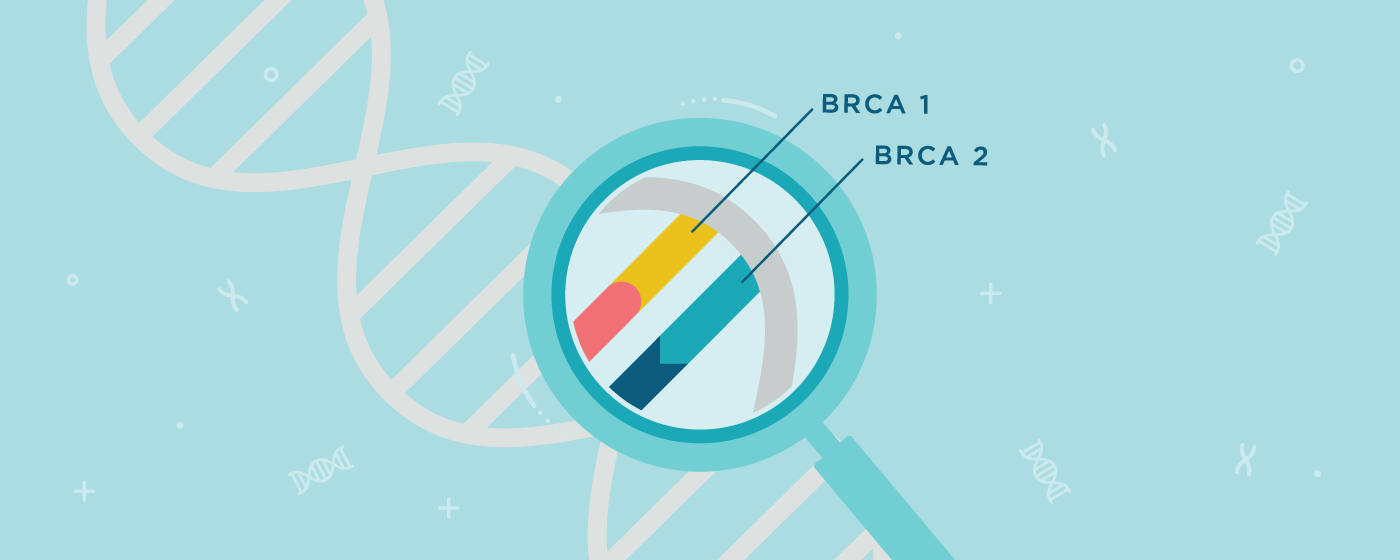Understanding BRCA

A hereditary cancer syndrome is a predisposition to certain types of cancer caused by inherited genetic mutations. The genetic mutations BRCA1 and BRCA2 account for the majority of women with a hereditary breast and ovarian cancer. The BRCA genes are tumor suppressor genes, which encode proteins responsible for DNA mismatch repair, and help repair damaged DNA. Women with a BRCA mutation are susceptible to an accumulation of damaged DNA, resulting in increased cancer risk and earlier onset of development. BRCA1 mutation carriers, for example, have an estimated 50% to 85% risk of developing breast cancer by age 70 and a 40% to 50% risk of developing ovarian cancer by age 85.
Fortunately, the rapid evolution of genomic medicine and advances in genetic screening such as Next Generation Sequencing (NGS) technology has allowed more individuals to undergo screening for hereditary cancer mutations like BRCA1 and BRCA2. Individuals or family members who have a history of the following may benefit from hereditary cancer screening:
- Cancer in more than 2 close relatives on the same side of a family
- Bilateral or multiple primary cancers
- History of multiple colorectal polyps
- Early onset breast, colon or endometrial cancer diagnosed before the age of 50
- Ovarian, pancreatic, male breast, metastatic prostate, or triple negative breast cancer diagnosed at any age
- Ashkenazi Jewish decent with a history of breast cancer diagnosed at any age
- Family history with a known hereditary cancer mutation
Preventative strategies to halt the development of breast or ovarian cancer, while life-saving, may affect a woman’s fertility. For example, a salpingo-oophorectomy (BSO) which removes the fallopian tubes and ovaries, is often advised to women age 35-40 who are at risk of developing ovarian cancer. This approach has obvious effects on a woman’s fertility in addition to causing premature menopause.
It is important, therefore, that BRCA mutation carriers know that there are ways they can build a family without the fear or worry of passing on the genetic mutation to their children. In order to be as informed as possible about reproductive options, BRCA carriers can benefit from reproductive counseling to improve knowledge and allow for more informed decision-making about reproductive options including egg and embryo freezing. IVF with preimplantation genetic testing is a modern technique that may be employed with embryo freezing to assist in the selection of embryos without a BRCA mutation. This will prevent passing on the BRCA1 and/or BRCA2 mutation to future offspring and end the cycle.
BRCA carriers are faced with complex lifetime challenges and need health care professionals to not only inform them of the medical implications of their carrier status but to also share information regarding family building options and fertility preservation. As the population of BRCA carriers increases, coordinating care between multiple health care providers is essential, with a focus on personalized medicine and comprehensive long-term care, empowering these women and improving overall health outcomes.
Individuals who know they are BRCA carriers are advised to follow the current guidelines for breast and ovarian cancer screening. These include:
- Clinical breast exams every 6-12 months with annual breast imaging starting at age 25 or earlier, depending on age of onset in the family.
- Magnetic resonance imaging (MRI) annually for women ages 25–29; annual breast MRI and mammography for women age 30
- Transvaginal ultrasound and tests for CA-125, a marker of ovarian cancer, every 6 months beginning at age 30 or earlier depending on family onset.
Preventative strategies can reduce the risk of breast or ovarian cancer development. A mastectomy and chemoprevention are two ways to reduce the risk of breast cancer development, although, chemoprevention is less commonly used in reproductive aged-women. For ovarian cancer, prevention strategies include early surveillance and prophylactic surgery. Chemoprevention with oral contraceptive pills (OCPs) is another option, as OCPs have been shown to decrease risk of ovarian cancer in BRCA carriers and the general population. However, risk of ovarian cancer still exists. BRCA carriers without a history of breast cancer can consider hormone replacement therapy (HRT) after surgery to mitigate these effects; HRT has not been associated with increased risk of breast cancer in this population.
